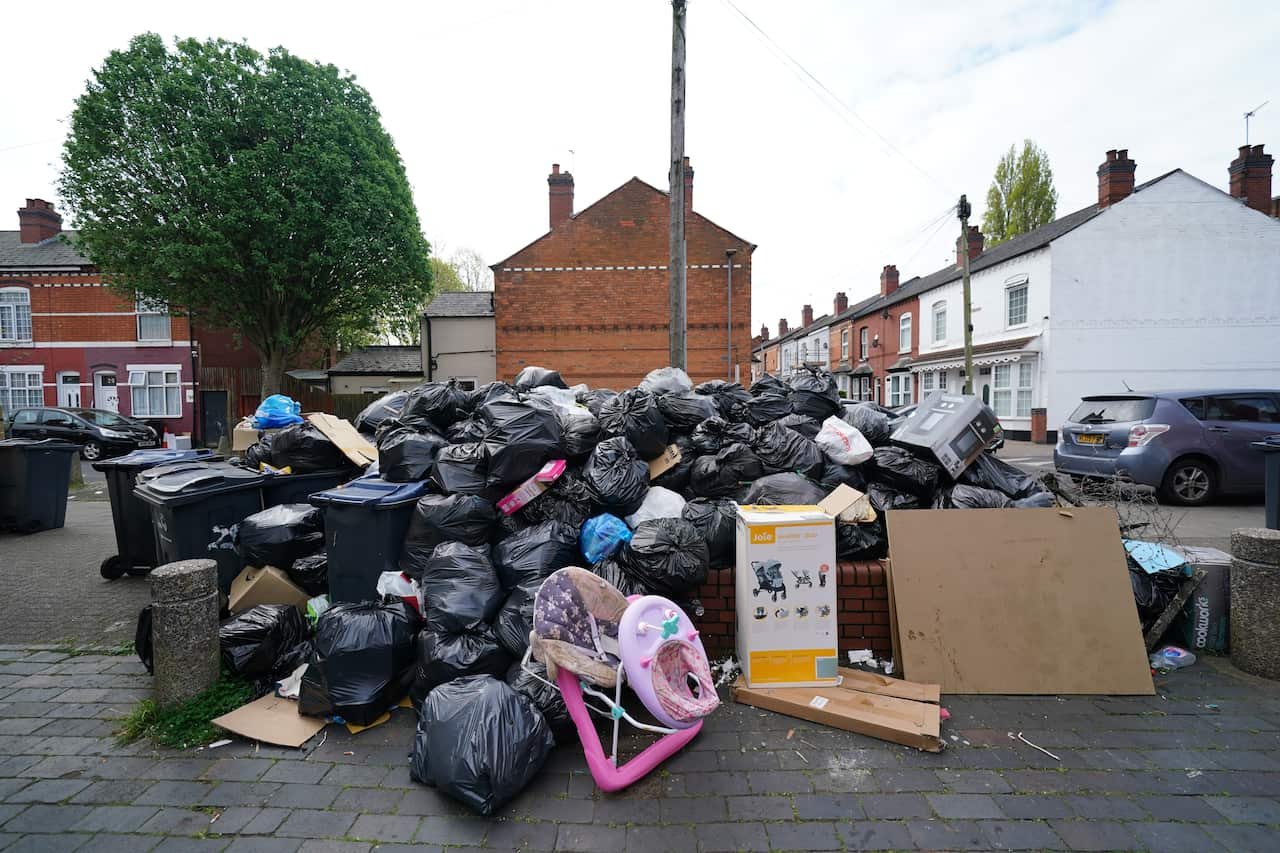A long-running bin dispute in Birmingham, United Kingdom, has entered a new phase, as agency staff — who until now kept the service running — voted to join the strike over what they describe as bullying, harassment, and unsustainable workloads.
The bin strike has taken place since the beginning of the year, leading to large piles of waste building up intermittently, in one of the UK's biggest cities.
Unite, the trade union representing the striking workers, said 18 of 22 agency workers employed via the workforce platform, Job & Talent, have voted to officially join picket lines from 1 December.
Some have already turned back at the picket lines, saying a "toxic" workplace culture in the refuse service has made it impossible for them to keep working, the union said.
The move comes as hundreds of refuse workers, who have been on all-out strike since March, voted overwhelmingly to extend their industrial action — possibly pushing disruption well beyond the May 2026 local elections.
With rubbish piling up, contingency crews stretched, and both sides publicly hardening their stance, Birmingham's bin saga appears set for its most prolonged chapter yet.

When did this dispute start?
The standoff started with Birmingham City Council's decision to remove a senior role on each bin crew in August 2024 — a position Unite maintains is "safety-critical". The council has insisted it was not industry standard.
Union members escalated from targeted action in January 2025 to a full walkout in March, after pay for drivers and senior loaders was reportedly slashed by as much as £8,000 ($16,000) a year.
Workers warned the cut — more than 20 per cent of annual pay — would leave families struggling to eat and, in some cases, keep their homes.
Unite argued the dispute worsened when the council reportedly fired and rehired heavy goods vehicle drivers to force them onto lower rates. It also alleged the council refused to provide evidence to support its claim that equal pay concerns prevented any deal.
Throughout the dispute, Unite has insisted it remains willing to negotiate.
But the council, according to the union, backed away from a "ballpark deal" reached with CEO Joanne Roney in May — leaving talks frozen for months.
Meanwhile, a spokesperson for Birmingham City Council said: "Unite has rejected all our offers."
How did it spiral to this week's escalation?
The strike has already lasted eight months and drawn global attention, with images of overflowing bins, black bags lining streets and long queues outside temporary waste drop-off points.
Unite said 99.5 per cent of its workers backed an extension of the strike on a 75 per cent turnout, suggesting staff feel the dispute is nowhere near resolution.
Into this already tense environment, the agency workforce — crucial to keeping basic collections going — stepped forward.
Job & Talent staff have long been embedded in the refuse service. The agency confirms its numbers have not increased during the strike.
But those workers have alleged the workload has become unmanageable and the treatment intolerable.
Unite has reported claims of bullying and harassment, which includes footage of a Job & Talent manager warning staff they risked being blacklisted by council chiefs if they refused to cross picket lines.
Job & Talent rejects the allegations and stresses it takes any welfare concerns "extremely seriously". A spokesperson said it operates with "transparency, integrity and full compliance with employment laws" and will not tolerate intimidation against workers participating in industrial action.
Industrial relations specialist Roger Seifert, from the University of Wolverhampton, described it as having evolved far beyond a typical workplace dispute.
He told the BBC that once councils rely heavily on agencies, "pressure builds up", gets shifted down the chain and produces "bad blood" — leaving residents to endure a worsening service.
What is each side saying now?
Unite has described the agency walkout as a "real escalation".
Sharon Graham, the union's general secretary, said workers are striking because of "the terrible way they have been treated by Job & Talent and Birmingham council", accusing the council of spending "a fortune it doesn't have" instead of agreeing a fair deal.
Unite's national lead officer Onay Kasab said residents have every right to worry about strikes stretching through Christmas, New Year and into the election period, but blamed the council for the deadlock. He said the union is still committed to "meaningful negotiations" and wants bullying and blacklisting "stamped out".
Birmingham City Council maintains Unite has "rejected all our offers" and insists its contingency plan is working. A spokesperson said the council is collecting around 1,330 tonnes of kerbside waste daily — more than before the strike — and more than 100,000 tonnes over the past six months.
The council said it will continue providing at least one collection a week.
The council also emphasised that the agency dispute does not sit with them but with Job & Talent, describing it as involving only "a small number" of workers.
What happens next?
With Birmingham City Council now formally bankrupt, residents fear they will ultimately bear the cost of the stalemate.
Unite's accountants estimate the dispute could cost the council £15 million ($30 million) over 2025.
For now, both sides remain entrenched.
Unite said the path out is simple: a fair deal on pay and conditions.
The council insists its reforms are "long overdue" and it will press on.
For the latest from SBS News, download our app and subscribe to our newsletter.

